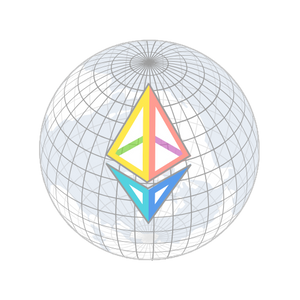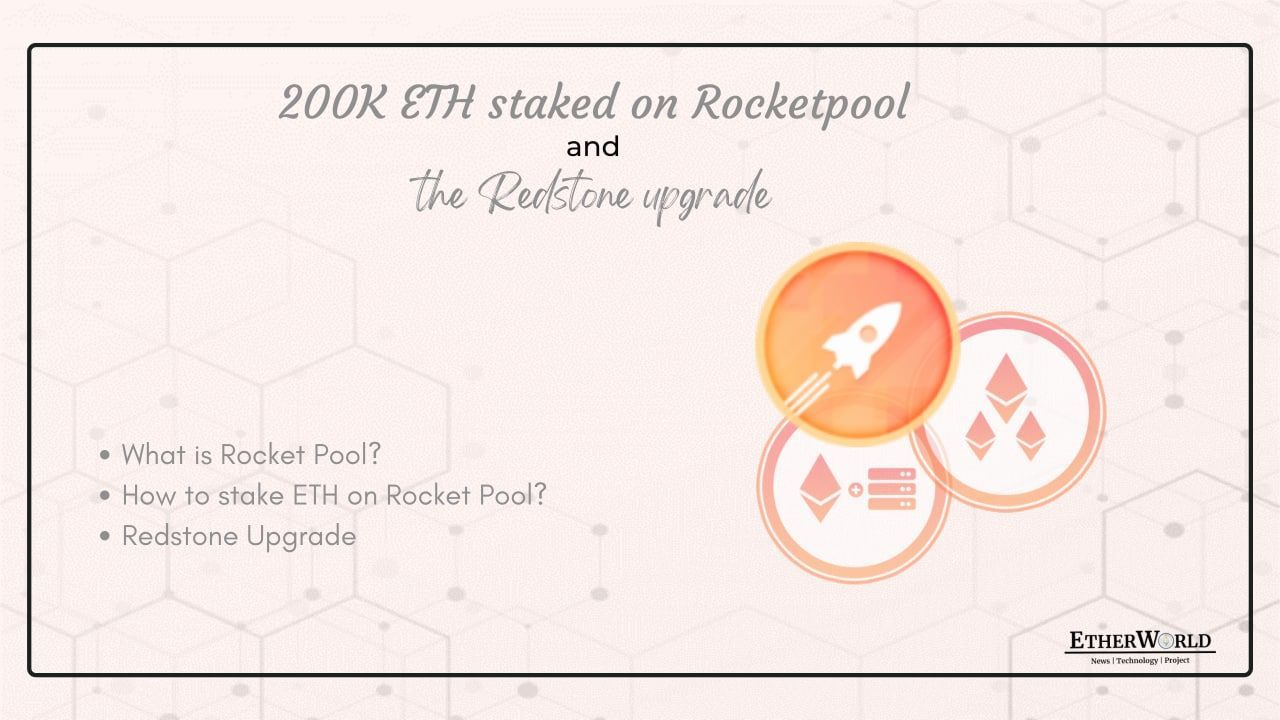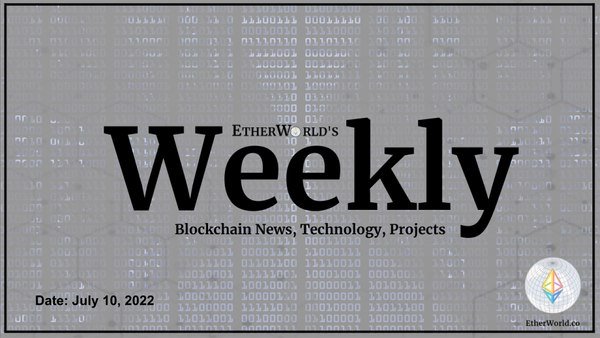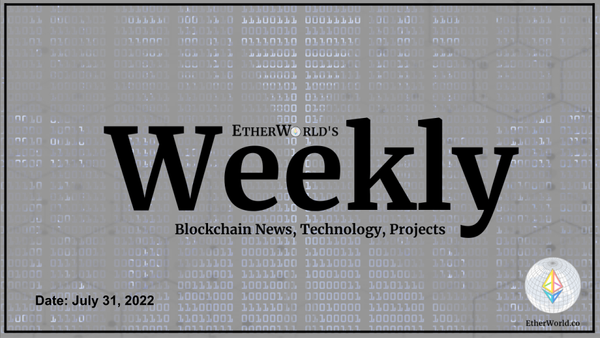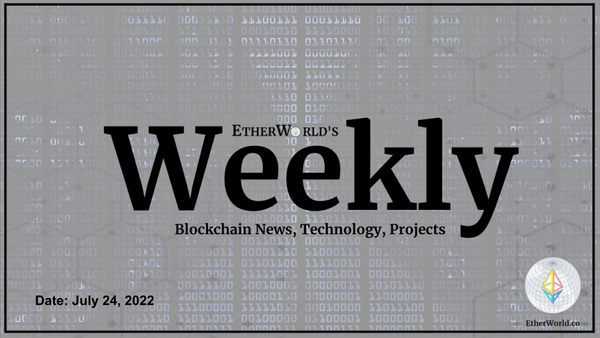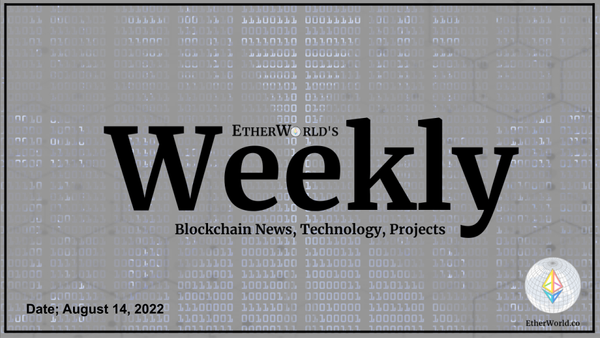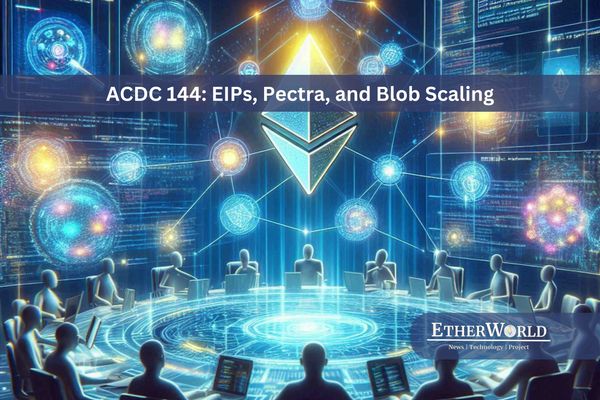Rocket Pool is an Ethereum 2.0 staking pool. The protocol aims to increase the decentralization and security of Ethereum by lowering the hardware and cash requirements for staking on ETH 2.0. In order to do this, Rocket Pool offers consumers the option to bet with absolute assurance on a network of node operators.
They have already staked more than 200K ETH , which is a tremendous accomplishment for a protocol considering that there have only been roughly 13 million ETH staked on Beacon chain to date.
Another great milestone!
— Rocket Pool (@Rocket_Pool) July 5, 2022
200K ETH staked!
A big thank you to our 1,283 node operators and rETH holders. Wen 1 mil? pic.twitter.com/0Ks5qYHtV7
- What is Rocket Pool?
- How to stake ETH on Rocket Pool?
- Redstone Upgrade
- Priority Fee Distributor
- New Rewards System
- Smoothing Pool
- rETH Transfer Delay
What is Rocket pool?
Since the Ethereum mainnet merging will result in a change from Proof of Work to Proof of Stake as its consensus protocol. To become a validator on Ethereum 2.0, 32 ETH is the minimum amount of ETH that is needed. Since doing so can be challenging, it may present a barrier to the network's decentralization and security.
Rocket Pool intends to offer its users a solution by enabling them to keep control of their money and to stake in favour of any node operator with as little as 0.1 ETH. Node operators on the protocol are those who approve or vouch for transactions on Ethereum 2.0 and are required to have 16 ETH on Rocket Pool in order to do so. There is an equal opportunity for all prospective node operators to collect user delegation. Users earn rETH, a liquid ERC-20 currency that stands in for 1 yield-bearing staked Ethereum, when they stake towards node operators. Users are free to do with their rETH as they like as long as ETH assets are staked towards Rocket Pool node operators. Interacting with other DeFi protocols falls under this.
How to stake ETH on Rocket Pool?
Rocket Pool nodes only need to deposit 16 ETH per validator, as opposed to single stakers who must put 32 ETH up for deposit to become a new validator. A new ETH2 validator will be made using this along with 16 ETH from the staking pool, which stakers contributed in exchange for rETH. The name of this new validator is minipool.
Your job as a Rocket Pool staker is to provide ETH to the deposit pool so that a node operator can become a new Beacon Chain validator. As little as 0.01 ETH can be bet. You will receive a token called rETH for accomplishing this. rETH serves as a representation of both the amount and date of your ETH deposit. The following ratio determines the value of rETH:
rETH:ETH ratio = (total ETH staked + Beacon Chain rewards) / (total rETH supply)
This implies that rETH's value effectively always rises relative to ETH because the Beacon Chain incentives will always be positive and will continually grow. Based on the Beacon Chain rewards received by Rocket Pool node operators, the rETH/ETH exchange rate is changed about every 24 hours. You are a Rocket Pool Staker as long as you possess the rETH token.
Redstone Upgrade
The Redstone Upgrade, the first significant internal upgrade to the Rocket Pool Protocol is released to accommodate various new changes that are being introduced with The Merge and the full transition to Proof of Stake consensus protocol of the Ethereum Proof of work chain.
The Merge is close.
— Rocket Pool (@Rocket_Pool) June 28, 2022
Rocket Pool's next release "Redstone" is an exciting new chapter.
Read all about it:https://t.co/s22MpE5ynp#TheMerge
The Besu and Nethermind clients are supported by the decentralised staking infrastructure service which is the Rocket Pool. By utilising the beacon chain, it enables individuals, dapps, and companies to receive incentives on their ETH holdings. The core of the network, the Rocket Pool smart contracts, help assign deposits for staking to decentralised node operators that handle the staking on your behalf.
The Redstone Upgrade, which intends to benefit all decentralised staking users, including liquid stakers with rETH and the network of decentralised node operators, is on the way as The Merge of the Ethereum mainnet is anticipated soon (likely around mid-September). The upcoming modifications are described in more detail below.
Priority Fee Distributor
Smart node operators and their minipool validators will be in charge of generating blocks after The Merge and will start getting priority fees (also known as tips) that are connected to each transaction. Similar to how Beacon Chain incentives are now distributed, this new distributor ensures that these fees are divided between the node operator and rETH liquid staking users.
New Rewards System
Node operators now have considerably more flexible and gas-efficient options for receiving their RPL payouts. One rewards interval is claimed with the new rewards system 8 times more effectively than with the old method, and ten intervals are claimed 40 times more effectively! Additionally, it is a lot more flexible.
Smoothing Pool
The new Smoothing Pool is an opt-in feature that will pool the priority fees of all members who have chosen to participate in it. This is a mechanism to make block proposals on the beacon chain more predictable and efficient.
rETH Transfer Delay
With the introduction of Redstone, sandwiching attacks are avoided while exchanging rETH for ETH by deducting one day's worth of rewards from the overall trade value. Additionally, this facilitates interfaces with third parties where rETH is minted more effectively.
The Redstone Upgrade can be tested on the Ropsten Testnet which has just recently completed The Merge.
Reference doc
Rocket Pool — The Merge & Redstone
Staking Overview | Rocket Pool
Read more
Read about Ethereum in Ethereum Bulletins -Ethereum Bulletin
Related articles
Disclaimer: The information contained on this web page is for education purposes only. Readers are suggested to conduct their own research, review, analyze and verify the content before relying on them.
To publish press releases, project updates and guest posts with us, please email at contact@etherworld.co.
Subscribe to EtherWorld YouTube channel for ELI5 content.
Support us at Gitcoin
You've something to share with the blockchain community, join us on Discord!
